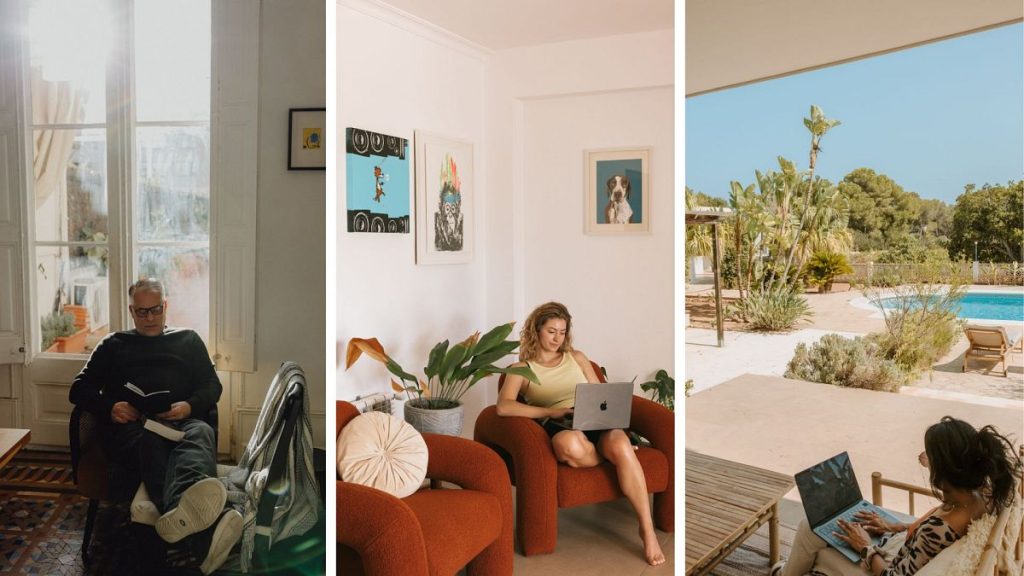The allure of home-swapping, popularized by the festive film “The Holiday,” paints a romantic picture of exchanging homes with strangers in exotic locations, fostering friendships, and even finding love. The concept, while appealing, raises questions about practicality and trust: Could someone truly be willing to swap their meticulously designed home for another, especially during the dreary winter months? And does opening up one’s home translate to opening one’s heart to strangers, or is that simply Hollywood fantasy? This article delves into the world of modern home-swapping, exploring its evolution, benefits, and the potential for genuine connection.
Traditional home-swapping platforms lacked the structure and safeguards necessary to build widespread trust, which is why Kindred, a modern take on the concept, was created. Kindred operates on a “give a night, get a night” model, where members earn credits by hosting others in their homes, which they can then use to book stays elsewhere. This essentially offers free accommodation, making travel more accessible. Unlike commercial short-term rental platforms, Kindred focuses on building a community of like-minded individuals who share a passion for travel and cultural exchange. The platform prioritizes primary residences over investment properties, fostering a sense of shared empathy and aligned incentives among members. This emphasis on genuine homes and authentic experiences distinguishes Kindred from the increasingly impersonal and transactional nature of many mainstream travel accommodation platforms.
The core principle of home-swapping relies on trust, requiring individuals to allow strangers into their personal spaces. This can understandably raise concerns about the care and respect for one’s belongings. Kindred addresses these concerns through a comprehensive system of checks and balances. All members undergo government ID verification, and the platform adheres to a strict code of conduct. Violating this code results in expulsion from the community. Furthermore, Kindred offers a full-service experience, coordinating cleaning before and after each stay to ensure properties are maintained in good condition, alleviating anxieties about cleanliness and potential damage. A 24/7 concierge service and comprehensive host and trip protection further enhance the sense of security and support.
The financial aspect of Kindred is another significant advantage. Unlike platforms like Airbnb, Kindred doesn’t impose hefty fees. Members pay a modest one-time service fee as a host or a cleaning fee as a guest, significantly lower than the typical costs associated with hotels or other booking platforms. This makes home-swapping not only a unique travel experience but also a “radically more affordable” one, particularly appealing for extended stays or digital nomad lifestyles. This affordability also contributes to a more sustainable travel model, minimizing the disruptive impact on local communities often associated with high-demand tourist areas.
Kindred’s growing popularity is reflected in the increasing number of listings, particularly in Europe. While popular destinations like Paris, Amsterdam, London, and Berlin are readily available, the platform also showcases a diverse range of off-the-beaten-path locations, offering travelers a chance to explore lesser-known gems. From charming cottages in Portugal and traditional wooden homes in Sweden to contemporary homesteads in Andorra and unique stays in a converted convent in Sicily, Kindred provides access to a wide array of authentic and inspiring accommodations. This diversity caters to various interests and travel styles, allowing members to discover hidden treasures and experience local cultures in a more immersive way.
Beyond the practicalities of accommodation, Kindred fosters a sense of community and connection. The platform encourages interactions between members, facilitating the exchange of local knowledge and personalized recommendations. This focus on shared experiences extends beyond online interactions, with Kindred organizing in-person events and dinner parties where members can connect and build relationships. The platform even facilitates direct swaps, allowing members to arrange exchanges with specific individuals they resonate with, fostering the potential for lasting friendships. These features highlight the platform’s commitment to cultivating a sense of community and fostering meaningful connections among its members.
In conclusion, Kindred transcends the simple exchange of homes, offering a richer, more immersive travel experience. It provides a platform for cultural exchange, personal connection, and affordable exploration. By prioritizing community, trust, and authentic experiences, Kindred redefines the concept of home-swapping, making it a viable and appealing option for a growing number of travelers seeking more than just a place to stay. The platform’s emphasis on shared values and curated experiences transforms travel from a transactional endeavor into a journey of discovery and connection, offering the potential for genuine friendships and a deeper understanding of different cultures.














